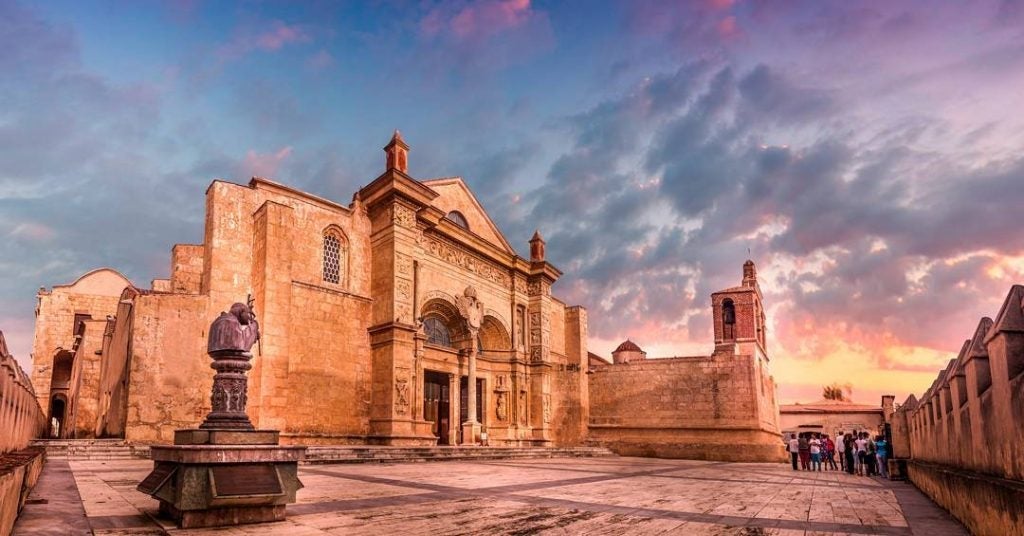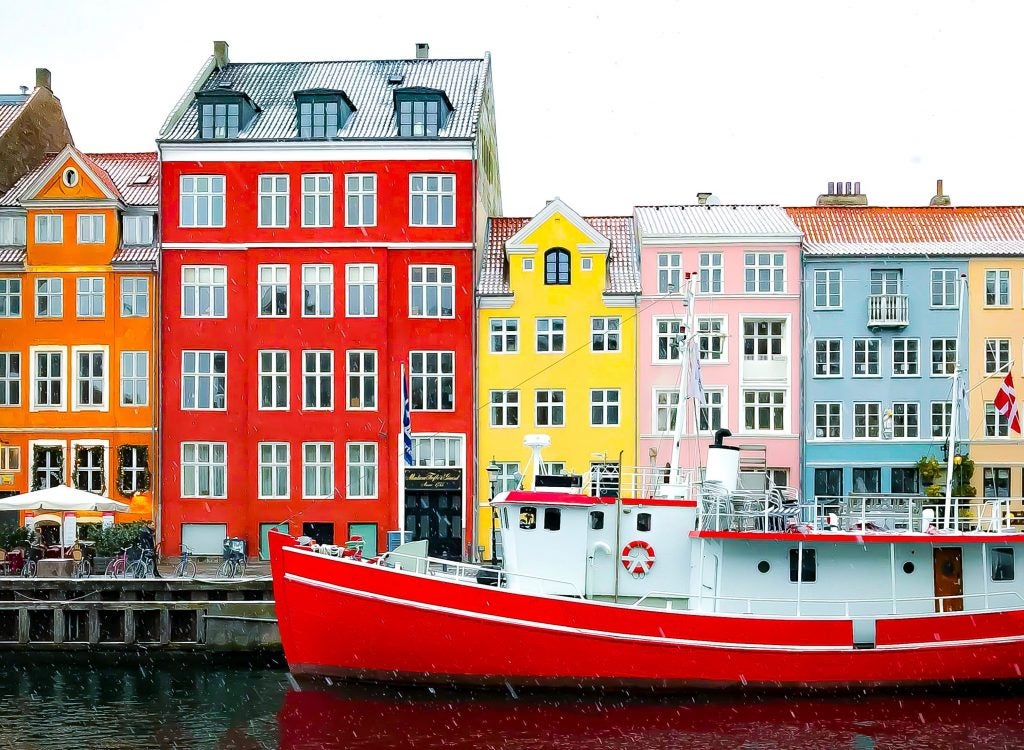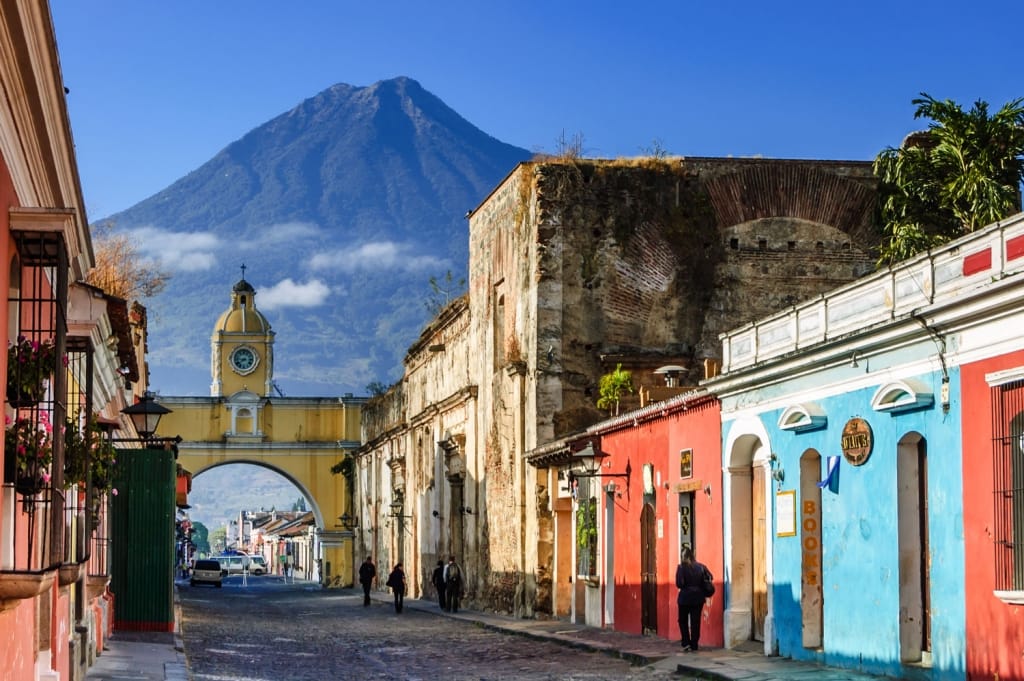Study Abroad
All coursework for a major or minor to be taken abroad must be pre-approved by the JUPS Program and the dean’s office. JUPS Majors may transfer up to 2 courses for a semester abroad. Minors may transfer up to 1 course for a semester abroad. All required JUPS core courses must be taken at Georgetown. For study abroad approvals, contact Prof. Elham Atashi. For more information on how credits transfer back to Georgetown, please visit the College of Arts & Science website.
Students interested in pursuing study abroad options should also consult with the Office of Global Education.
JUPS-Oriented Study & Volunteer Abroad Options
CBL/JUPS261: Georgetown in Cape Town: Social Transformation in South Africa ( Summer)
CBL/JUPS: Georgetown in Cape Town: Social Transformation in South Africa ( Summer)

Venture to a cosmopolitan city that is still emerging from decades of apartheid, and is marked by its history of legal and racial discrimination, inequality, and oppression, but is all a hub for community organizations working on issues related to human rights and social justice. Through discussions, lectures, site visits, and meetings with community leaders, you will gain insight into the history of South Africa and the system of apartheid and extend this understanding to analyze the ongoing impact of past injustices on present policies and social movements. In addition to lectures and discussions led by faculty and site visits to historical places, you will be immersed in local cultural contexts through a placement at a community service organization where you will observe and participate in community struggles for economic, education, and social equality. This course satisfies the JUPS CBL requirement.
CIEE Liberal Arts in Santo Domingo — Instituto Filosófico Pedro Francisco Bonó or Instituto Tecnológico de Santo Domingo (INTEC), Santo Domingo, Dominican Republic
CIEE Liberal Arts in Santo Domingo — Instituto Filosófico Pedro Francisco Bonó or Instituto Tecnológico de Santo Domingo (INTEC), Santo Domingo, Dominican Republic

Students get to know the Dominican people and significantly improve their Spanish skills in Santo Domingo. Through coursework, an internship with a grassroots development organization, and volunteer opportunities, they learn about the country’s rich history. By studying in advanced-level courses and living with native speakers, students take their Spanish skills to the next level. They learn about important topics like slavery and endangered mangroves both in class and out in the real world while gaining valuable work experience.
Students will see the colonial zone, an anthropological museum, ecological preserves, the Samaná Peninsula, and the Cibao region in the Dominican Republic. They will also have the opportunity to take a specialized track in Caribbean studies, participate in non-credit volunteer opportunities, and take advantage of the support of peer advisors.
Potential JUPS Electives: CIEE Courses: ANTH 3001 SDDR: Social and Ethnocultural Identity of the Contemporary Caribbean (required core course for Caribbean Studies track); INSH 3100 SDDR: Development Internship (includes academic coursework and practical field experience); LAST 3100 SDDR: Language and Culture in the Dominican Republic; LITT 3002 SDDR: Authors of the Hispanic Caribbean. Instituto Filosófico Pedro Francisco Bonó Courses: Dominican Social History; Historical Process of Latin American Religiosity; Latin American Literature; Latin American Social History; Latin American Thought; Social Philosophy; Theory of Knowledge. INTEC Courses: Contemporary Social Thought; Dominican Socio-Historical Processes; Ecology; Economic Development; Environmental Education; Introduction to Studies of Environmental Impact; Social Science Research I
CIEE Liberal Arts in Buenos Aires — Universidad de Buenos Aires (UBA), Pontificia Universidad Católica Argentina (UCA), and Instituto Universitario Nacional de Arte (IUNA)
CIEE Liberal Arts in Buenos Aires — Universidad de Buenos Aires (UBA), Pontificia Universidad Católica Argentina (UCA), and Instituto Universitario Nacional de Arte (IUNA)

The endless treasures to explore in Buenos Aires are the experiences students will have in this vibrant city: taking classes in Spanish at a local university; getting to know regional politics and social and economic issues; living with a local family in the big city; exploring Argentina’s countryside; and more. Students will become part of the local university community through CIEE courses and courses at Argentine universities with Argentine students, get involved in local community organizations and development through CIEE’s community service seminar and learn outside the classroom on CIEE educational and cultural field trips in and around Buenos Aires, including visits to museums, festivals, and soccer matches.
Potential JUPS Electives (these are CIEE courses; there are countless more at the three universities that students may take classes at): Multiculturalism and Ethnicity in Argentina; International Relations of Latin America; Seminar on Community Service and Volunteerism; Cultural Issues in Argentine History; Body, Gender, and Sexuality in Argentina: Representations, Experiences, Social Movements, and Politics
Danish Institute for Study Abroad — Copenhagen, Denmark
Danish Institute for Study Abroad — Copenhagen, Denmark

DIS Abroad has several programs and tons of core electives that can be taken regardless of program. So, below each JUPS-friendly program is listed and described, and then the potential JUPS electives for all of them are listed. DIS Abroad also has a research project option.
Discover how the city has become the focal point for cultural expression, social change, and political tension. Symbolizing freedom and upward mobility, the city promises a better life while at the same time generating challenges and fears. Students will travel on two course-integrated study tours to Vienna and Budapest to compare how these cities are currently developing their infrastructure from both the Eastern and Western European sociopolitical contexts. Using Copenhagen as their classroom, students will engage in field studies that explore its dramatic urban change over the past few decades, from the development of a welfare state to a cutting-edge, sustainable, and livable city. This program is for students of history, urban design, urban studies, politics, or sociology who wish to engage and examine contemporary cities through a multidisciplinary academic lens.
Core Course: European Urban Life and Development (Note: This course will change name to The European Urban Experience: Why Cities Matter from fall 2015)
Enrich and develop your critical thinking skills through investigating and reflecting on current issues in child development and education. Delve into a cross-cultural approach to childhood and adolescence and reflect on the unique Nordic pedagogy of ‘the good childhood.’ Students will travel with DIS faculty on course-integrated study tours to explore cross-cultural European educational methods by visiting practitioners, researchers, and childcare and youth institutions Each student will also develop interpersonal competencies in their practicum by engaging actively with a Danish childcare institution, public school, or a high school. This program is for students of child development, social policy, human development, family studies, anthropology, education, or sociology who want to enhance your intercultural skills and explore international theories and practice within the discipline of child and adolescent development.
Core Courses: Adolescence in Northern Europe, Child Development in Scandinavia, Children in a Multicultural Context, or Children with Special Needs
Enhance your knowledge of international law and human rights by analyzing the legal aspects and political context behind major modern conflicts and human rights violations in Europe. Students will take a core class with faculty who have first-hand experience from recent international conflicts, and who bring a professional perspective to the classroom on how law affects military planning and execution of operations. They will travel with DIS faculty on course-integrated study tours and come face to face with current political tensions and issues of national identity in the aftermath of recent conflict and civil war. Students will build analytical skills focused around legal thinking and acquire tools to understand how legal methods can be applied in real-life examples using Danish and international case studies. This program is for students of political science, international relations, government, human rights, pre-law, or global studies.
Core Course: Humanitarian Law and Armed Conflict
Prostitution and the Sex Trade
Prostitution is legal in Denmark, Sweden, and the Netherlands, but each country applies its own policies and laws. In this program, students explore how different cultures construct very different narratives about sex, gender, and rights, and grapple with conflicting views. Students will travel with DIS faculty on course-integrated study tours to talk with former sex workers and NGOs to examine the differences, legally and socially, in how prostitution is approached in comparison to Denmark. They will use Copenhagen as a case study with guest lecturers and class visits to the city’s Red Light District and organizations such as Reden (The Nest), a drop-in facility for Danish sex workers. This program is right for students of gender or women’s studies, sociology, anthropology, human rights, or international relations. The topics explored relating to prostitution and human trafficking will apply to a future career in law, academia, or social work.
Core Course: Prostitution and the Sex Trade in Europe
Examine the social, political, and economic issues associated with sustainable development and the range of Danish and European stakeholders shaping the sustainability agenda. Students will use Copenhagen as a classroom by visiting some of the world’s most progressive sustainability initiatives, such as the European Environment Agency, Risø National Laboratory for Renewable Energy, and the NGO Energy Crossroads. They will travel with DIS faculty on course-integrated study tours to leading Danish and Northern European destinations with cutting-edge sustainability strategies from off-shore wind power to urban redevelopment. Students will also create their own strategic plan for a sustainable future by combining classroom experiences with field studies and study tour visits. This program is right for students of environmental studies, public policy, or general environmental affairs.
Core Course: Sustainable Development in Northern Europe
Potential JUPS Electives: Activism: Engagement and Resistance; Al-Qaida and Intelligence Analysis; Changing the News: Communication and Positive Psychology; Children in a Multicultural Context; Children with Special Needs; Conspiracy Theories and Historical Controversies; Cross-Cultural Communication; Cross-Cultural Psychology; Cultural Diversity and Social Capital; Defending the Planet: Sustainability Practicum; Designing Communication Campaigns; Development Economics; Economics of Crime; Environmental Economics; Environmental Impact of Humans; Environmental Philosophy; Environmental Policy in Practice; Equality in Scandinavia; European Urban Experience, The: Why Cities Matter; Fleeing Across Borders: International Refugee Law; Food Systems; Gang Crime in Scandinavia; Gender Perspectives on Human Rights; Gender and Sexuality in Scandinavia; Geographic Information Systems: Applied Climate Change Cases; Getting There: Transportation in Urban Europe; Globalization and European Economies; Health Beyond Borders; Healthcare Strategies for At-Risk Populations; Holocaust and Genocide; Human Trafficking in a Global Context; Humanitarian Law and Armed Conflict; LGBTQ in Europe: Theories, Communities, and Spaces; Masculinities in Scandinavia; Migrant Communities and Religious Diversity in Denmark; Muslims in the West; Positive Psychology; Prostitution and the Sex Trade in Europe; Psychology of Crisis; Public Health Ethics; Rebel Nations: Between Communism and Democracy; Sociology of Migration; Stolen Childhoods: Migrant and Refugee Children in Europe; Strategies for Urban Livability; Sustainable Development in Northern Europe; Women and Leadership; Women, Art, Identity
School of International Training (SIT) Study Abroad
School of International Training (SIT) Study Abroad
School of International Training (SIT) Study Abroad offers more than 50 accredited undergraduate semester study abroad programs — in Africa, Asia and the Pacific, Europe, Latin America, and the Middle East, as well as comparative programs in multiple locations. Search programs (new window) by location, language, issue area, or term. Each program focuses on field-based research and culminates in a published academic paper on a relevant topic of the student’s choice. Click this link to learn more about how Georgetown students have found SIT programs to be integral to their undergraduate experiences.
Program examples include:
- Chile: Cultural Identity, Social Justice, and Community Development
- Indonesia: Arts, Religion and Social Change (new window)
- Morocco: Migration and Transnational Identity
- Rwanda: Post-Genocide Restoration and Peacebuilding (new window)
- Serbia, Bosnia, and Kosovo: Peace and Conflict Studies in the Balkans (new window)
- Samoa: Social and Environmental Change in Oceania
See the full list of program offerings by clicking this TerraDotta link.
Ghana Health and Education Initiative — Western Region of Ghana
Ghana Health and Education Initiative — Western Region of Ghana
The Summer Serve and Learn volunteer program offers an experience in international development work in Africa. Volunteers take part in 16-day sessions working alongside local staff to reach common goals. Each program–Malaria Prevention, Girls’ Empowerment, and Children’s Enrichment Camp–is designed to complement GHEI’s year programming and the skills and expertise of volunteers. Students have the opportunity to learn from the local community and gain profound insight into life in rural Ghana. They benefit from Twi language lessons, discussions on pertinent topics, and cultural exchanges such as meeting the village chief, attending a drumming and dancing workshop, and traveling to sites in the historic Ghanaian cities of Kumasi and Cape Coast.
GHEI envisions a future where children–free from illness and illiteracy–can realize their full potential, a future where healthy, educated young people will lead their communities out of poverty. Success at GHEI is firmly rooted in the idea that local capacity leads to sustainability. Therefore, they recruit, train, and employ people directly from the communities where they work. They believe that investing in an individual is to empower a community.
Cultural Vistas Fellowship — Argentina, Germany and India
Cultural Vistas Fellowship — Argentina, Germany, and India
The Cultural Vistas Fellowship affords underrepresented U.S. university students the unique opportunity to advance their career goals, develop global competencies, and experience life in another culture. Cultural Vistas will select up to 12 fellows to take part in this multinational professional development program that includes eight-week summer internships in Argentina, Germany, and India. This fellowship opportunity is funded by Cultural Vistas. Cultural Vistas Fellows will enrich their academic learning through professional internships and immersion experiences focused on entrepreneurship and innovation. One cohort of up to four fellows will travel to each international destination.
Ceiba Gap+ — Antigua, Guatemala
Ceiba Gap+ — Antigua, Guatemala

Ceiba’s Gap+ participants experience immersion in global citizenship, local action, and deeply-affective personal development. They serve as community project leaders for Ceiba’s high school students. Participants choose which community partner most interests them when they apply. They work closely with Ceiba’s high school Education Mentors and community partners to ensure project goals are being met, evaluate group dynamics, and collaborate with all involved to see that Ceiba students are engaged through the entire program. When not in the field, and in coordination with the Education Mentors and project partners, you help to develop, strengthen, and prepare the projects for student work days.
Participants take Spanish classes at one of Antigua’s top Spanish schools. Twice per week, they have four hours of class, for a total of eight hours per week. In addition to the Spanish school, participants spend the majority of community service time speaking in Spanish.
Dream Corps — Rural China
Dream Corps — Rural China
Dream Corps is an international NGO that aims to address the problem of education inequality in China by working closely with local governments, schools, educators, communities, and parents to set up libraries, provide quality books, and run reading activities to cultivate the interest and ability for self-guided learning in rural China.
Dream Corps is recruiting about 50 international volunteers to participate in its Summer Volunteer Program in rural schools and villages of China. Applications are due at the end of February. Volunteers will establish and develop libraries and reading programs. The will work to understand and learn from locals by communicating with the local teachers and through home visits, community research, and promoting reading in the community.
The program consists of 1 month of online training in April (3 hours per session, 1 session per week); 3 days of on-site training in Beijing; 3 weeks of volunteer work on assigned volunteer sites; and a 2-day concluding forum back in Beijing.
The Center for Global Education
The Center for Global Education at Augsburg College provides cross-cultural educational opportunities that foster critical analysis of local and global conditions so that personal and systemic change takes place leading to a more just and sustainable world. CGE programs are intensive and experiential. Participants engage with multiple perspectives and listen to the voices of the marginalized. Their programs create an environment where diversity is respected and where students, faculty, and staff encourage discussion and responses to various forms of oppression such as racism, sexism, homophobia, economic inequality, xenophobia, and classism. They provide opportunities to expand your worldview and to challenge your perceptions about global justice and human liberation. Programs include:
- Social Change in Central America: Exploring Peace, Justice, and Community Engagement
- Southern Africa: Nation Building, Globalization, and Decolonizing the Mind
- Mexico: Crossing Borders
- Mexico: Migration, Globalization and the Environment
- Mexico: International Business and Global Citizenship
News
Announcements
Study Abroad: Lily Adami (COL ’22) – South Africa
Where did you study abroad? I studied abroad in the summer of 2019 in Cape Town, South Africa. ‘Social Transformation in South Africa,’ was a three-week trip through the Justice and Peace…
March 21, 2022